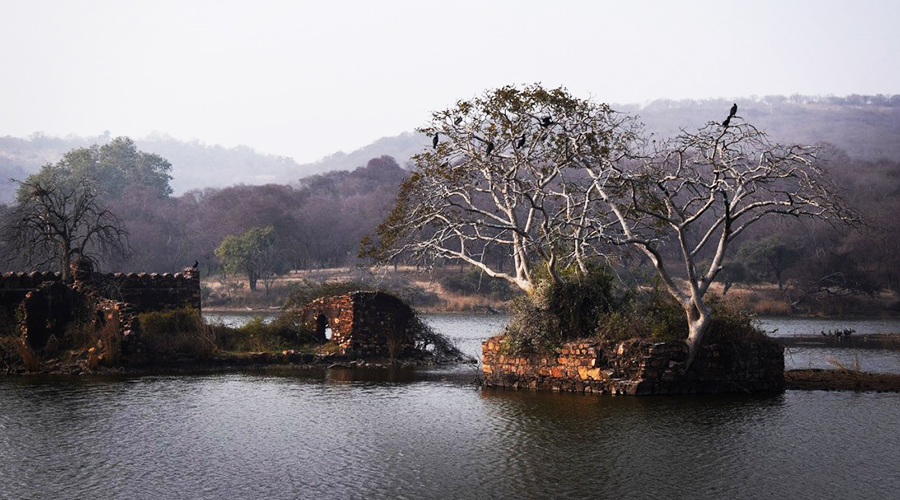
“For me, enrolling in the Penn Master of Environmental Studies program (MES) was about finding my direction,” says water management consultant Amisha Shahra (MES ’22).
After completing an undergraduate degree in 2016 at Penn, Amisha returned to her home in Mumbai, India, to start a career in global development with the Global Education and Leadership Foundation (tGELF). “We were building and scaling multiple development projects alongside global partners and advocacy movements centered around the United Nations Sustainable Development Goals,” she says. (The United Nations SDGs are 17 urgent calls to action for developing global peace and prosperity that address problems like climate change, poverty, and clean water and sanitation.) The work, she says, drew her into the climate sector and inspired her to return to school for a sustainability-oriented graduate degree.

Amisha applied to several graduate programs but returned to her alma mater to pursue the Master of Environmental Studies (MES) for several reasons. First, she was looking for a global community of students and alumni with strong, future-oriented environmental convictions. “I spoke with some alumni before I enrolled,” she says, “and they helped me understand the potential of being surrounded by a growing community of students with similar goals and vision in the MES.” Second, she was drawn to the option of crafting an individualized concentration. “I went into the program with a broad mindset—I didn’t go in with one specific research question or idea of what my entire master’s program would look like. For me, it was more about finding my direction. Having that option to craft a concentration for someone with an unconventional background was helpful; it allowed me to explore courses and ideas across the field and then build upon them.”
Amisha recalls one of the courses which guided her path: ENVS 6300 660: The Future of Water. Led by instructors Jon Freedman, Francesca McCann, and Charles Iceland, the course explores risks and opportunities in the water sector from a global perspective. “All three instructors work as professionals in the water sector,” she says. “Understanding real-world examples helped me absorb the gravity of the problem,” she explains, which guided the design of her individualized concentration in Sustainable Water Management.
The course also inspired Amisha and several classmates to start the Penn Water Club, Penn’s first student club focused on water issues.
Through a special environmental studies course offering, Amisha and a delegate of students attended the 9th Annual World Water Forum in Dakar, Senegal, in March 2022. She and her classmates traveled to the weeklong forum to give presentations and learn more about global water issues. “The World Water Forum brought people from all around the world together in one place—practitioners, governments, young people, entrepreneurs—to have dialogs around water issues, like water security, governance, management, and sustainability,” she says. “It was an incredible experience.”
The flexibility of the MES curriculum allowed Amisha to complete the Certificate in Ecological Architecture at the Weitzman School of Design as part of her studies. “I took one of Professor Bill Braham’s classes in large-scale restoration projects for the certificate that centered around nature-based solutions to wastewater and water management issues, like constructed wetlands,” she says. “The class pushed me further into the sustainable water management space.”
For a group project, Amisha and the team designed a hypothetical nature-based solution for a polluted landfill site in Mumbai. “We looked at the history of landscape and assessed the ecological capital that exists in the city,” she says. “The region is made up of wetlands and mangroves that protect the coastline, which act as a first line of defense and a buffer zone for extreme weather events.” Through their design, she explains, the team included native wetland and other ecological solutions to address wastewater and soil pollution around the landfill. Amisha was studying remotely from home during the project, due to COVID-19, so she took advantage of the opportunity to visit the site and conduct interviews with local community members, activists, and even the landfill security guard.
Another impactful course Amisha took outside of the MES department was DYNM 6660 001: Systems and Design Thinking, offered by the Organizational Dynamics Programs. Amisha explains that a key element of design thinking is ensuring that the relevant stakeholders are involved at every level—from developing a problem statement to finding solutions. “That class was really exciting for me. I’ve utilized design thinking concepts throughout my work, even today,” she says.
Amisha was also part of an interdisciplinary team of students representing Penn in the Environmental Protection Agency’s 2021 Annual Campus RainWorks Challenge. Collaborating with Sayer High School, which is in one of West Philadelphia’s hottest zip codes, the team developed green stormwater infrastructure (GSIs) and other design solutions to address various environmental and environmental justice issues surrounding the high school campus neighborhood. The project received an honorable mention for outstanding community engagement in the demonstration project category.
At graduation, Amisha received the 2022 Penn Global Graduate Student Citizenship Award Honorable Mention, recognizing her involvement locally and globally during her time in the MES program.
After graduation, Amisha says, “I was ready to explore the field and work on innovative adaptation and mitigation solutions.” Today she is an independent climate consultant working out of Philadelphia. She has various clients, including the World Bank, the Water Center at Penn, and several nonprofits in India. “My responsibilities include strategy, project management, and partnerships centered around innovation and collaborations in the water sector,” she says. Tomorrow, she hopes to make an even bigger splash. “My goal is to work on scalable climate and water solutions that can truly move the needle,” she says.





